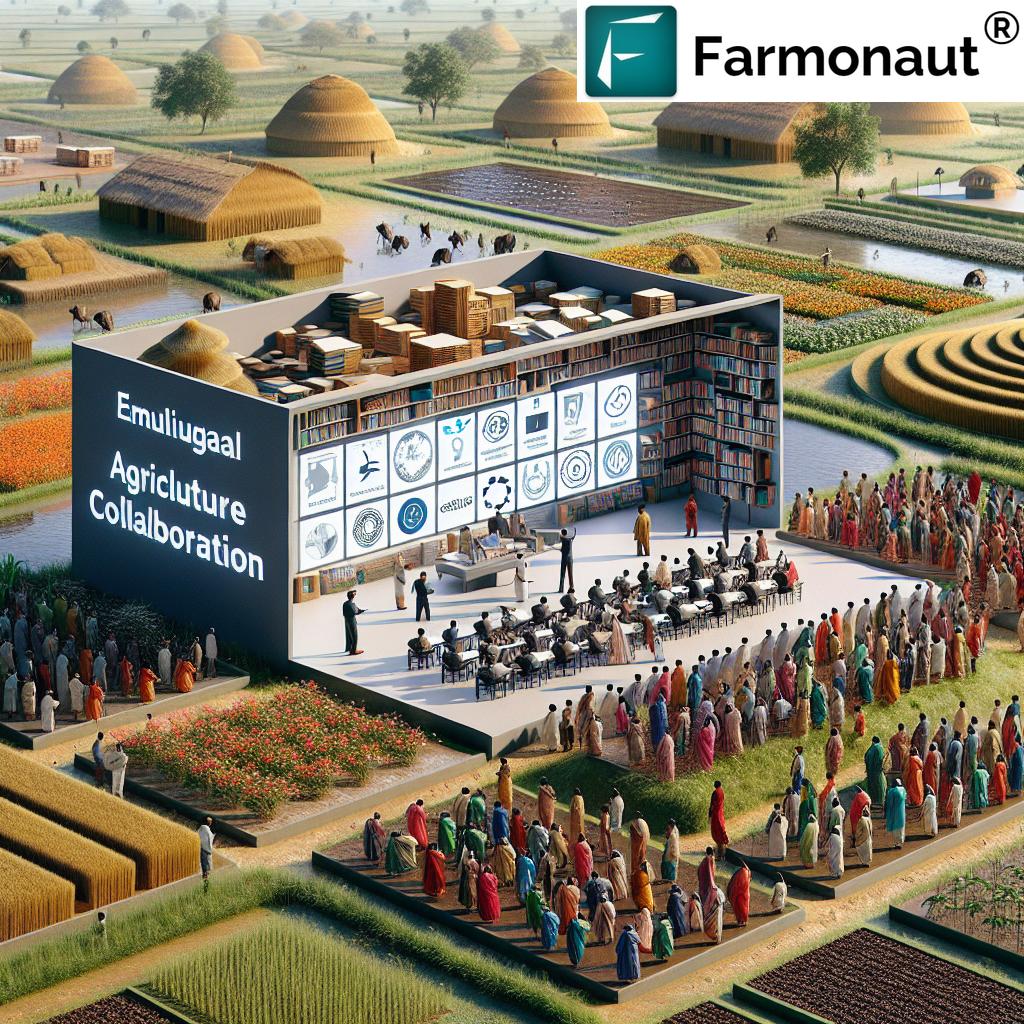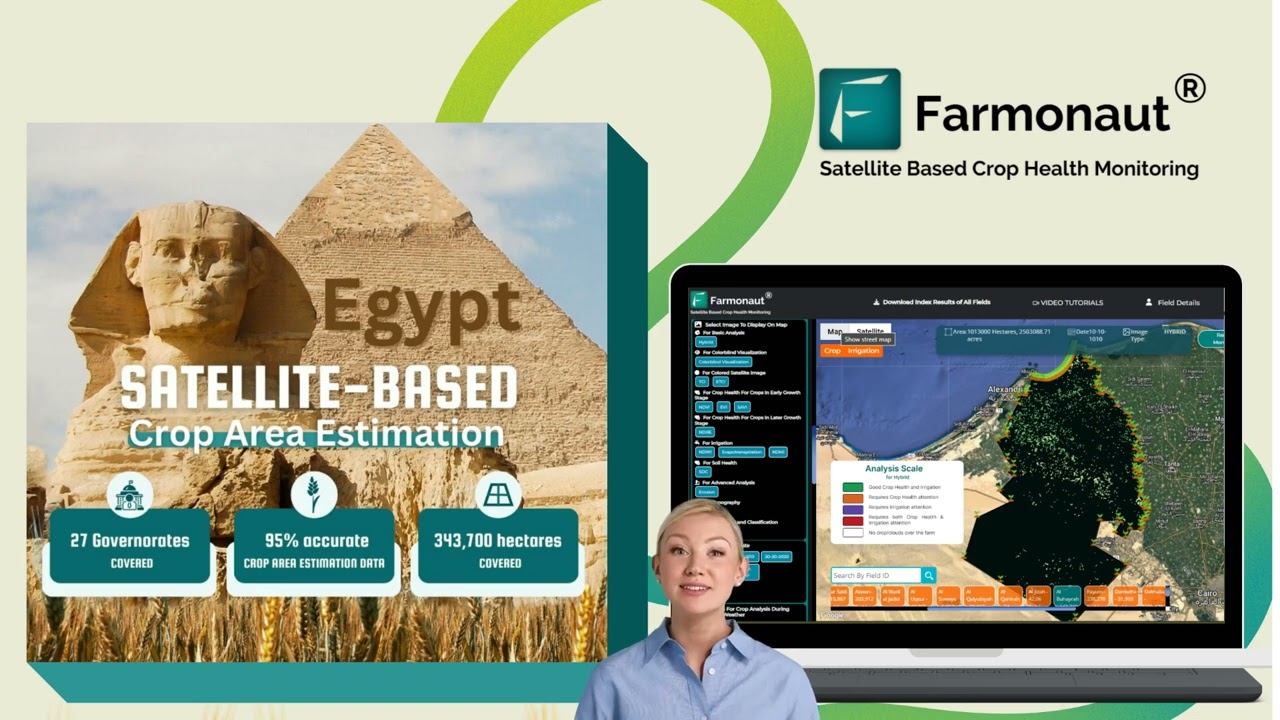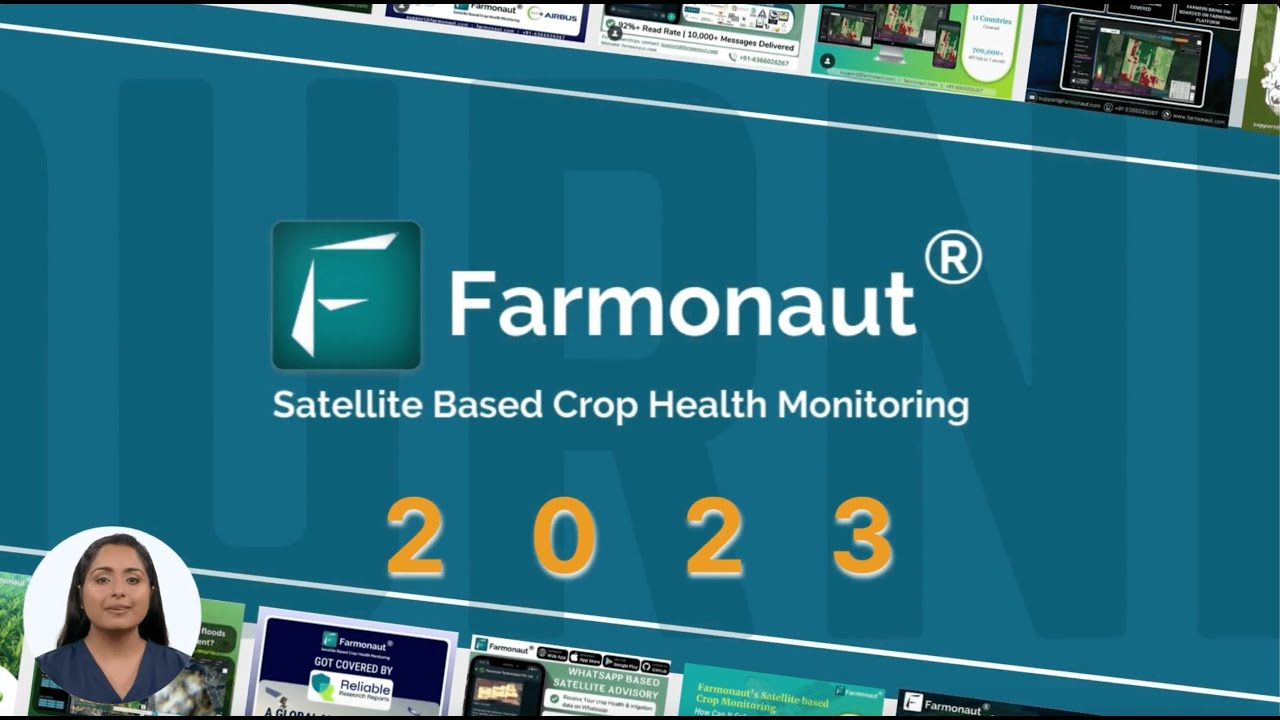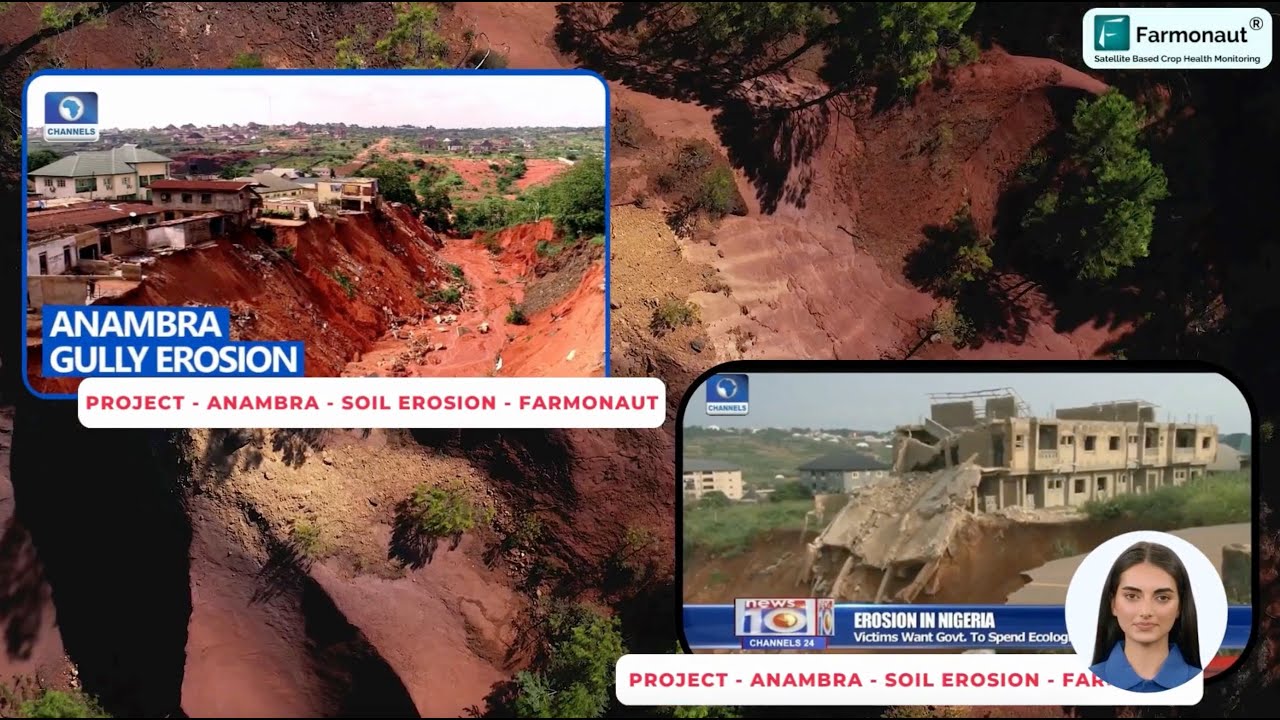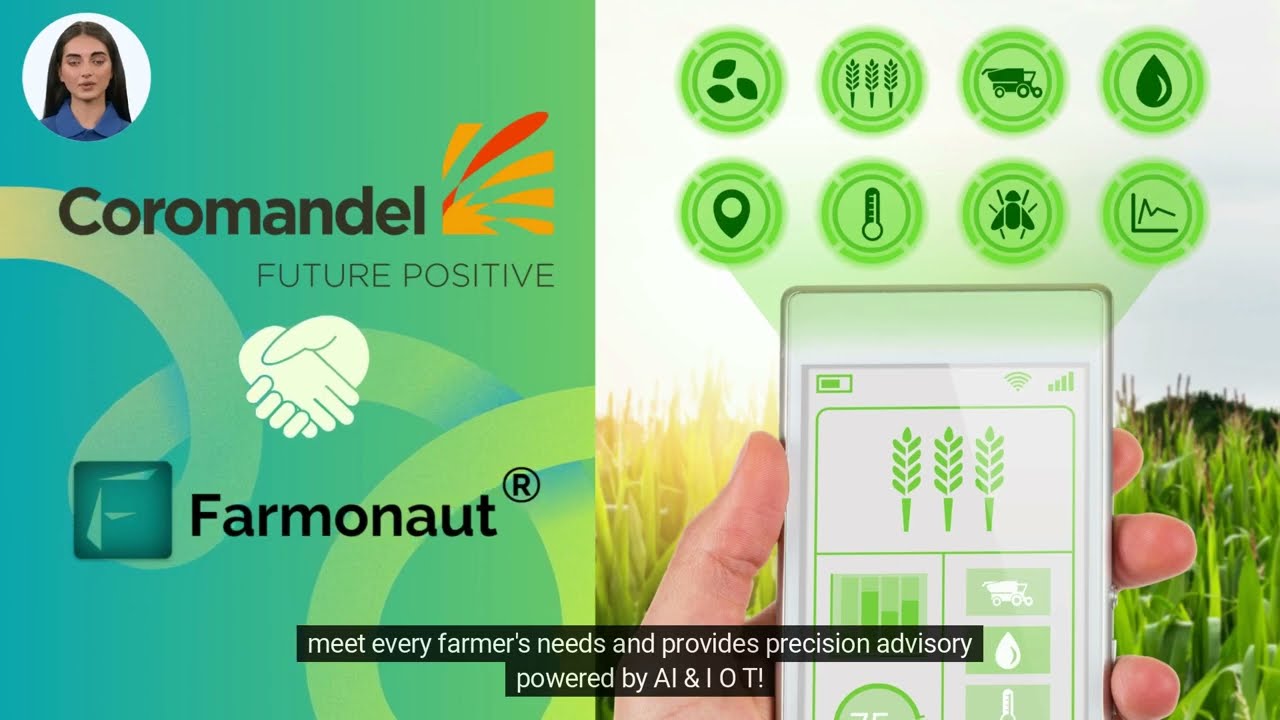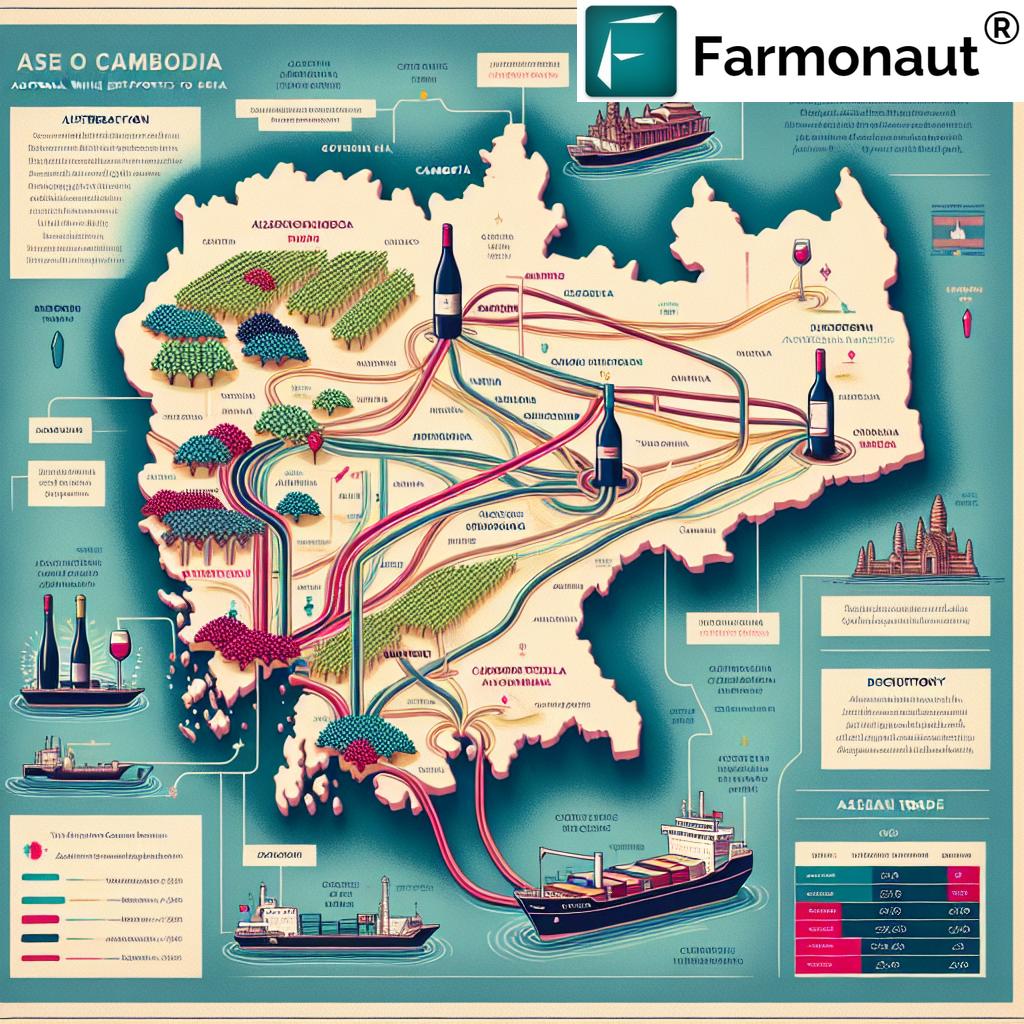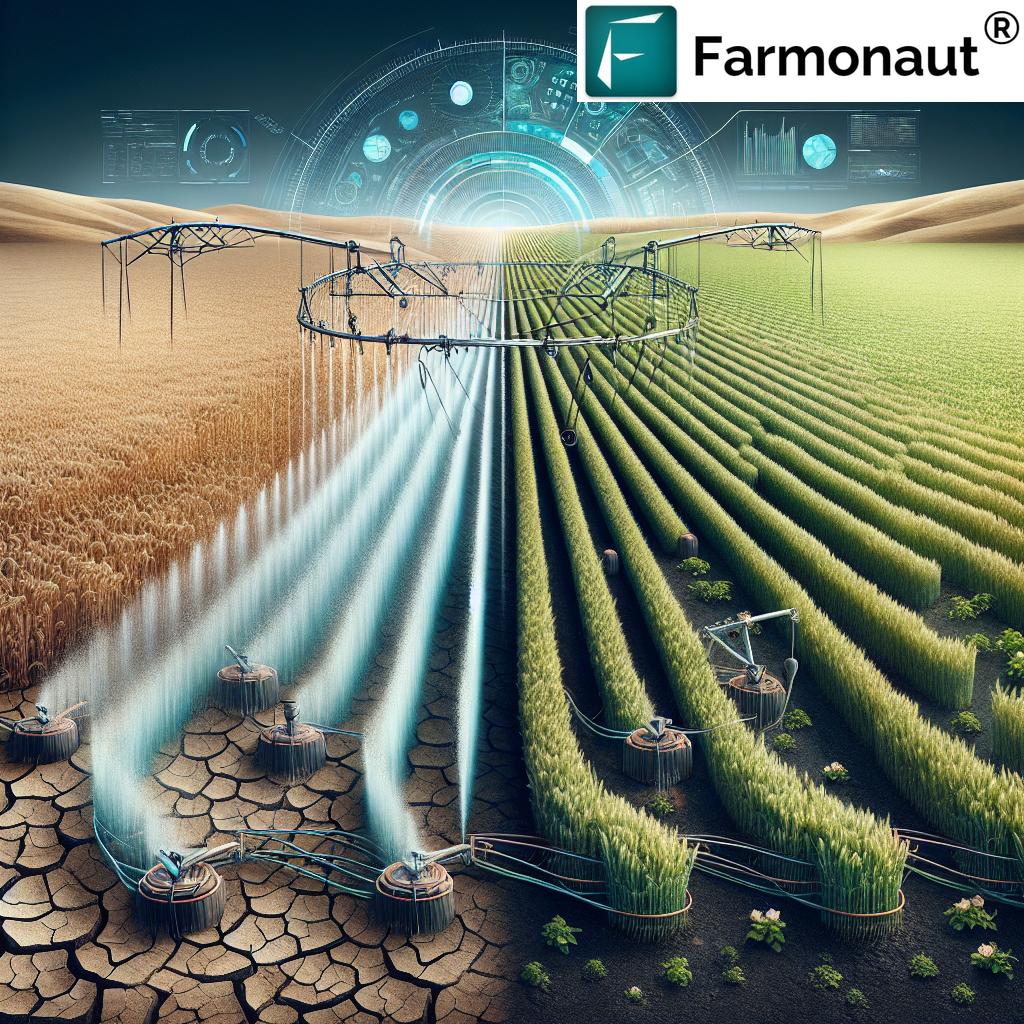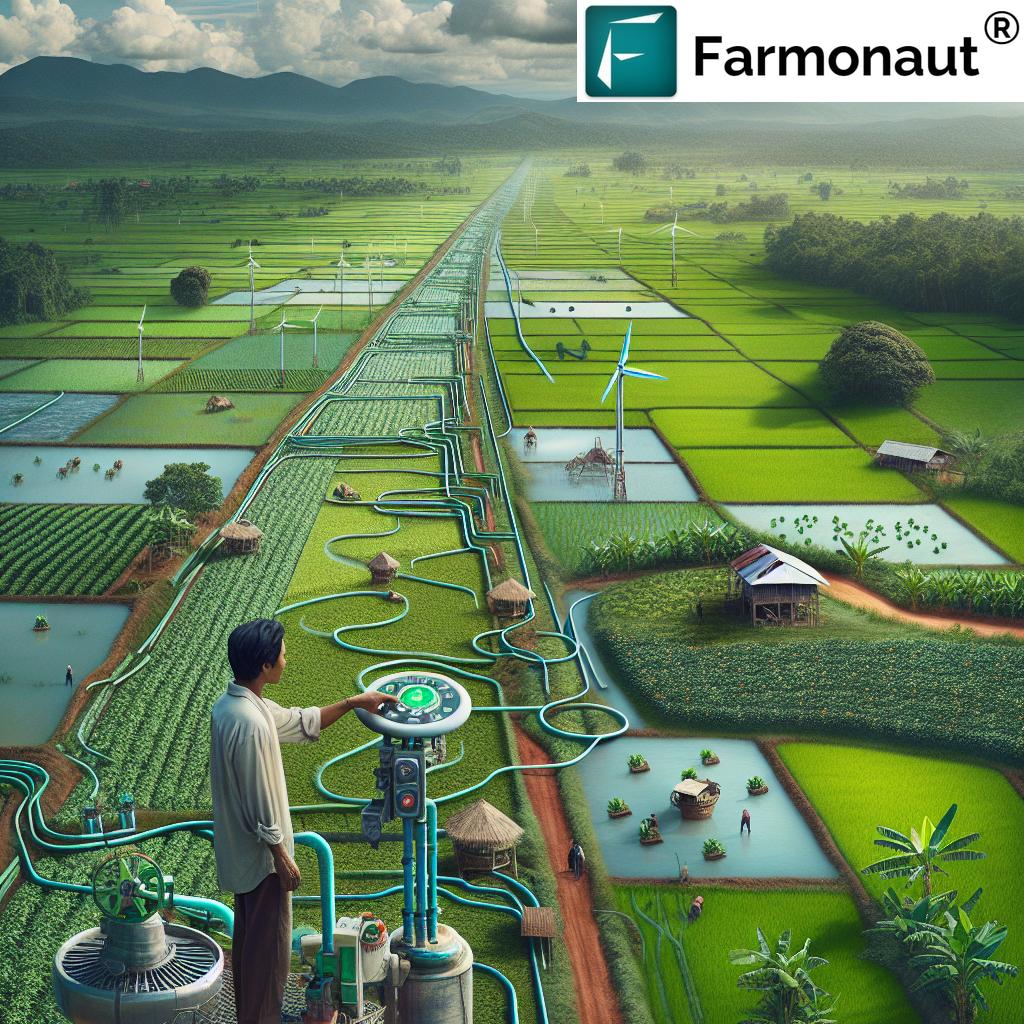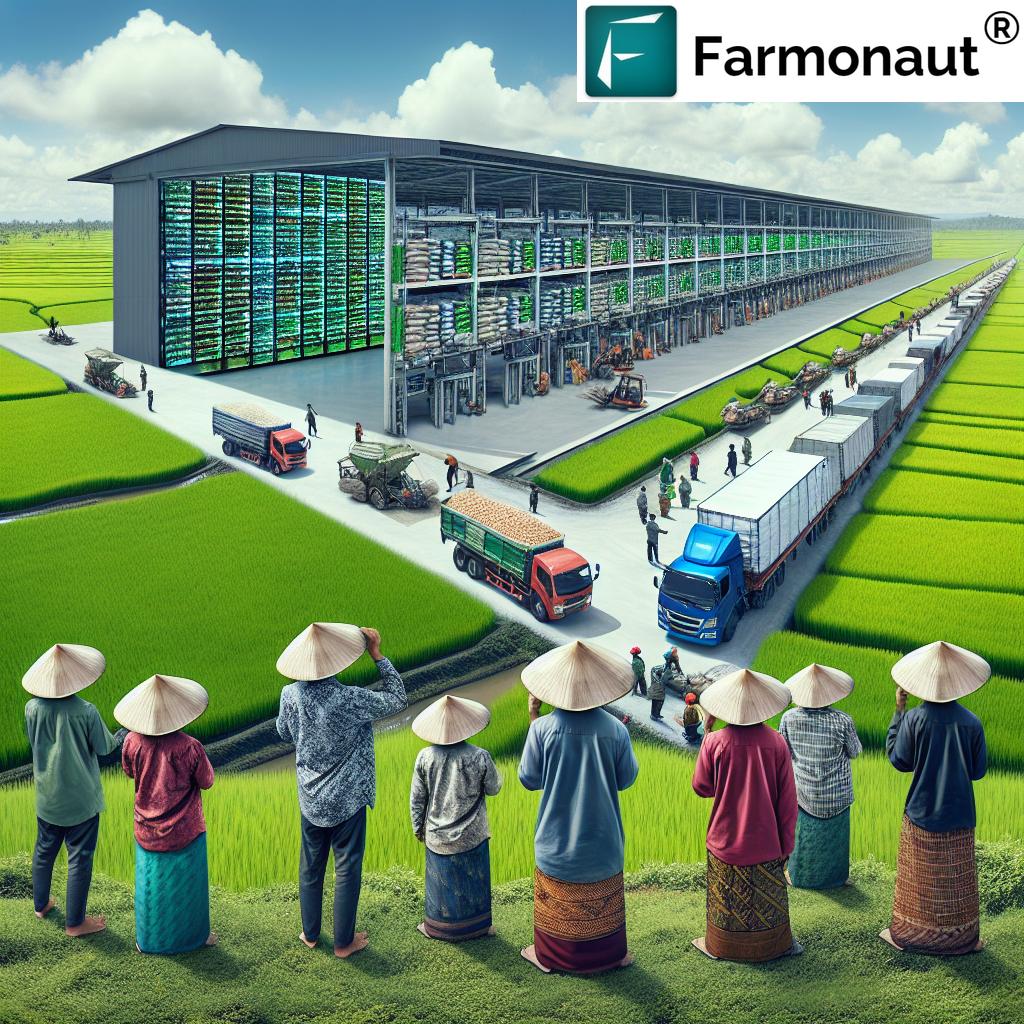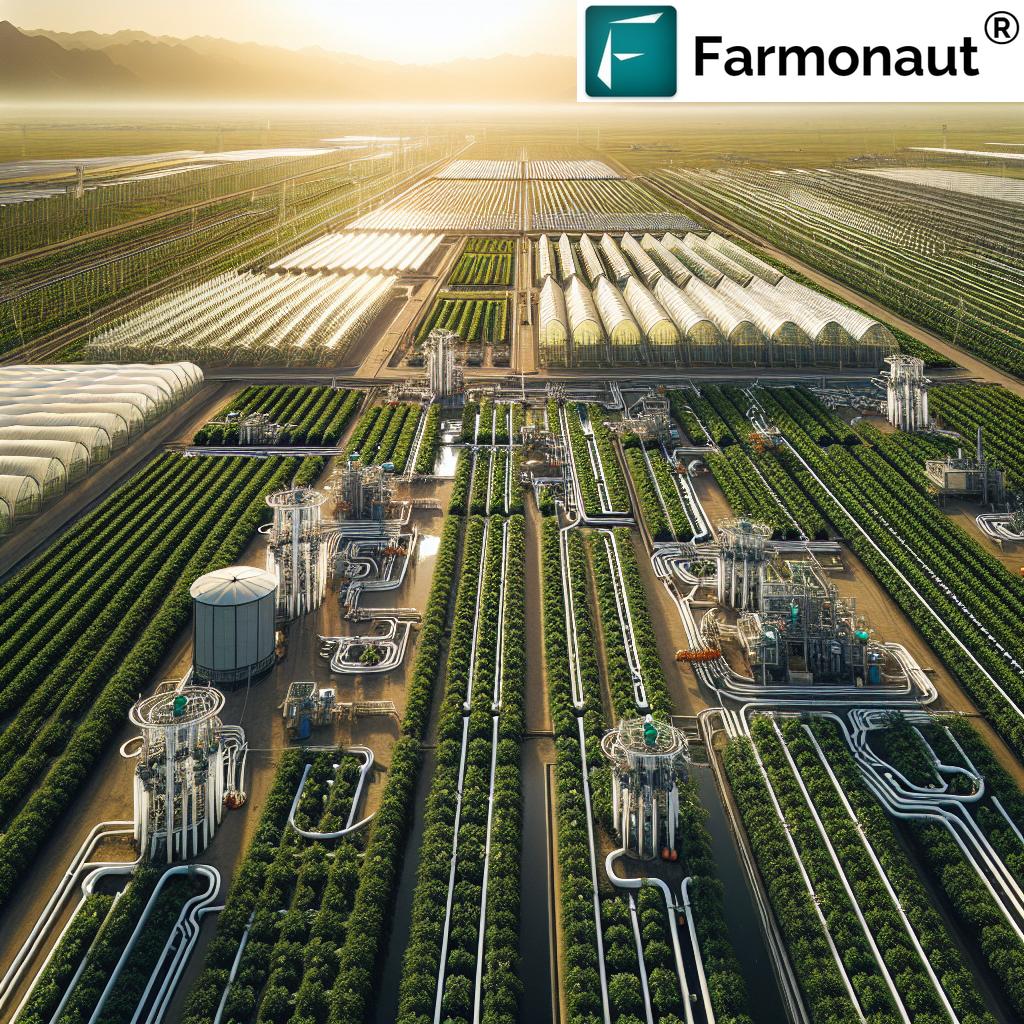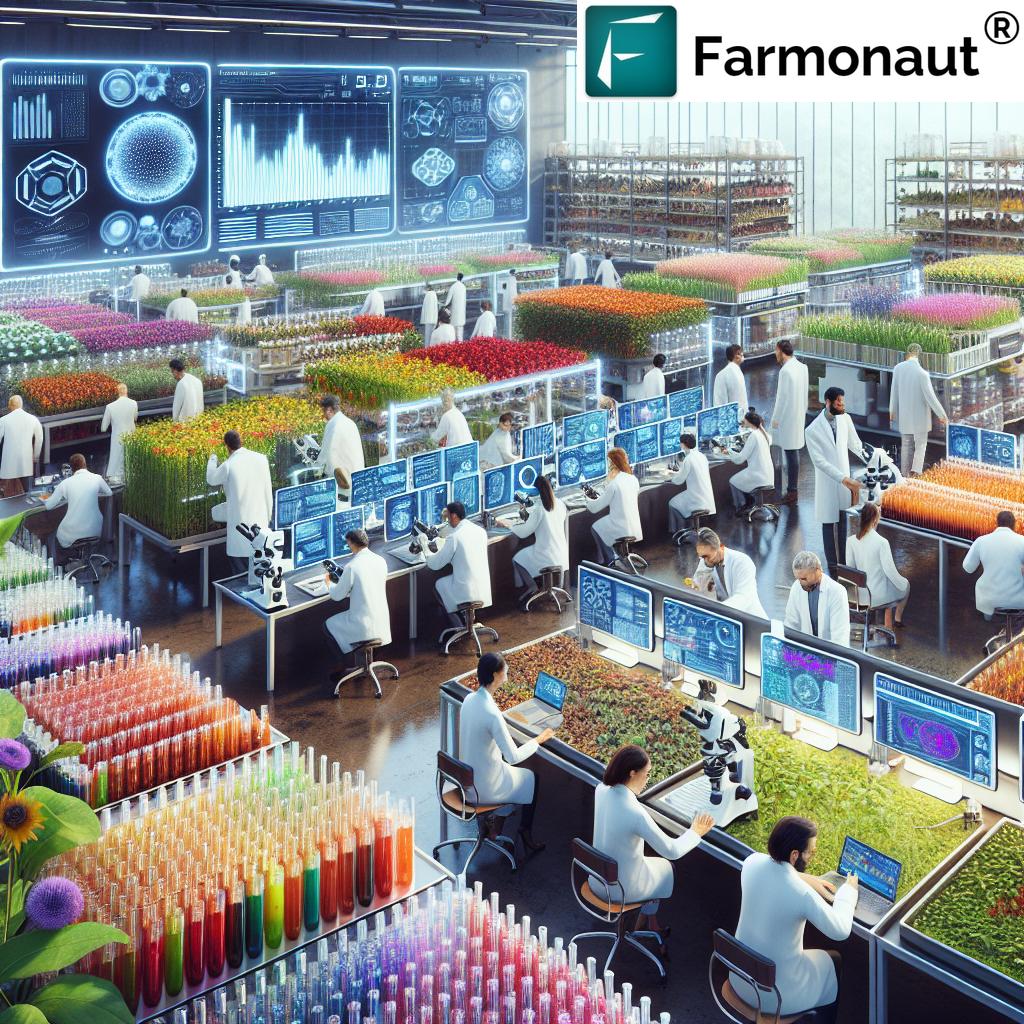Table of Contents
- Introduction
- Why Regenerative Agriculture?
- Empowering 100M Farmers: Focus on India & Africa
- How Regenerative Agriculture Training Empowers Farmers
- Farmonaut’s Role in Agriculture Innovation & Sustainability
- Comparative Impact Summary Table: India & Africa
- Structure & Reach: Multilingual Online Agriculture Courses
- Food Security, Biodiversity & Ecosystem Restoration
- Technology Advancing Sustainable Farming Practices
- Video Gallery: Regenerative Agriculture & Innovation
- Future of Rural Development: Next Steps
- Farmonaut Subscription Plans
- FAQ: Regenerative Agriculture, Training & Impact
“Over 100 million farmers in India and Africa are adopting regenerative agriculture for sustainable food production.”
Regenerative Agriculture Empowers 100M Farmers in India & Africa
At the pivotal intersection of sustainability and rural empowerment, a groundbreaking initiative is redefining the future of agriculture in two of the world’s most agriculturally significant regions: India and Africa. Through regenerative agriculture training, this unprecedented program is set to reach 100 million farmers, delivering knowledge in Hindi, English, Swahili, Spanish, and Portuguese—bridging continents, languages, and communities. Together, we are catalyzing food security in rural communities, championing environmental protection, and scaling up sustainable development in some of the globe’s most vital agricultural areas.
As we explore the scope of this extraordinary joint effort, we’ll examine how knowledge transfer, science, and innovation equip millions to improve their productivity, contribute to ecosystem restoration, and spark transformative change. We will also underscore the pivotal role of precision agri-tech, such as Farmonaut, fast-tracking the journey toward sustainable, data-driven, and highly productive farming methods.
Let’s embark on this informative journey—localizing stories and solutions for our communities across India, Africa, and the Americas.
Why Regenerative Agriculture? The Sustainable Solution for Future Farming
In the face of intensifying challenges—from climate change, soil degradation, to biodiversity loss—conventional farming methods are under increasing scrutiny. We must ask: how do we feed a growing population while restoring the planet’s vitality?
- Regenerative agriculture seeks to reverse land degradation, combat biodiversity loss, and reduce greenhouse gas emissions, all while increasing agricultural productivity.
- This approach goes beyond sustainability—actively contributing to ecosystem restoration and improving soil health by enriching organic matter, promoting biodiversity, and tightening nutrient cycles.
- Key practices include cover cropping, minimal tillage, diverse crop rotation, integrating livestock, and organic soil amendments.
These fundamental principles empower us to create productive, resilient, and future-ready agricultural systems.
Regenerative Agriculture Training: Empowering 100 Million Farmers in India & Africa
The ambition of empowering smallholder farmers on a massive scale stands at the heart of global food security and sustainable development. Across India and Africa, small-scale farms form the backbone of rural economies—and they face similar climatic and economic challenges, from erratic rainfall patterns to degraded soils and market instability.
- Access to tailored training not only strengthens agricultural productivity but lays the foundation for resilient rural communities, ensuring the next generation of farmers thrives amid adversity.
- Courses are delivered in Swahili (widely spoken in African countries), Hindi (India’s most used language), as well as Spanish, English, and Portuguese, breaking linguistic barriers and making knowledge transfer accessible for all participating communities.
- This approach amplifies the impact of agricultural development, ensuring that every voice and every region—be it rural Nigeria, Maharashtra, or the Americas—has a stake in the joint effort for a sustainable future.
How Regenerative Agriculture Training Empowers Smallholder Farmers
The core strategy involves online agriculture courses that are practical, visually engaging, and locally contextualized. These span the fundamental principles of regenerative agriculture, including:
- Soil health improvement: Understanding soil microbiome, organic matter, and erosion control.
- Sustainable farming practices: Water harvesting, integrated pest management, and resource optimization.
- Biodiversity and ecosystem restoration: Promoting crop diversity and natural habitats.
- Carbon sequestration: How regenerative techniques capture and store atmospheric carbon, mitigating the impact of agriculture on the environment.
- Market access: Certification, traceability, and value chain enhancement for rural communities.
This knowledge empowers us to improve productivity sustainably, ensures food security in rural communities, and facilitates tangible, measurable impacts for millions. The initiative further provides expert mentorship, fostering a collaborative learning community across continents.
Farmonaut’s Role: Agricultural Innovation Programs Accelerating Change
As agricultural science and innovation companies continue to reshape the sector, Farmonaut stands out through its robust, technology-driven solutions. Precision agriculture is essential for both empowering smallholder farmers and supporting large agribusinesses. Farmonaut’s mission aligns with the regenerative agriculture revolution—making precision agriculture affordable and accessible for everyone.
- Satellite-Based Farm Monitoring: Our platform uses multispectral satellite imagery to deliver real-time insights into crop health (NDVI), soil moisture, and detailed field analytics. These AI-driven capabilities help maximize yields, optimize input usage, and monitor environmental factors on farms of all sizes.
- AI Advisory System (Jeevn AI): We deliver personalized advisory directly to farmers—localized weather forecasts, actionable recommendations, and automatic detection of crop anomalies, bridging the gap between traditional knowledge and 21st-century agricultural innovation.
- Blockchain-Based Traceability: Transparency is the foundation of market access. Our blockchain solutions enable verifiable tracking from farm to food retailer, building trust and enabling rural producers to participate in premium markets.
- Fleet & Resource Management: Fleet management tools help agribusinesses reduce operational costs, optimize machinery use, and streamline logistics. Explore these solutions tailored for farm enterprises through our fleet management system.
- Carbon Footprinting: Monitor, track, and reduce farm-level emissions with our real-time carbon footprinting analytics—an essential step in meeting global sustainability standards.
- API for Developers: Integrate satellite and weather intelligence into your agri-software via our API endpoints and detailed developer docs. This maximizes ecosystem-wide impact for researchers, NGOs, and tech companies.
- Large-Scale Farm Management: Designed for cooperatives and governments, our large-scale farm management platform enables scalable, data-driven land management at regional and national levels.
- Insurance & Crop Loans: Satellite-based crop verification drives faster, more reliable agri-finance and insurance, directly supporting smallholder families and rural development policies.
By integrating advanced technology with sustainable farming practices, Farmonaut fosters a new era of regenerative agriculture—where increased yields, environmental restoration, and rural prosperity go hand in hand.
Comparative Impact Summary Table: Quantifying the Benefits of Regenerative Agriculture Training
To contextualize this extraordinary initiative, see our comparative impact summary for India and Africa—based on estimated outcomes from regenerative agriculture training and program implementation.
| Region | Number of Farmers Trained (Estimated) | Main Crops Impacted | Increase in Yield (%) | Soil Health Improvement (Yearly %) | Food Security Improvement (Estimated Households Benefited) |
|---|---|---|---|---|---|
| India | 60,000,000 | Rice, Wheat, Millet, Pulses, Cotton, Sugarcane | 15–20% | 7–12% | 40,000,000+ |
| Africa | 40,000,000 | Maize, Cassava, Sorghum, Coffee, Cocoa, Groundnut | 12–18% | 6–10% | 25,000,000+ |
| Combined Total | 100,000,000 | Region-Specific Major Crops | 12–20% | 6–12% | 65,000,000+ |
These quantitative outcomes illustrate the immense socioeconomic and environmental benefits that regenerative agriculture training delivers to participating rural communities across continents—strengthening food security, restoring land, and supporting family farming livelihoods.
“Regenerative agriculture training has improved food security in rural communities across two continents: India and Africa.”
Inclusive Training: Multilingual Online Agriculture Courses
True transformation only happens when knowledge transfer is inclusive, accessible, and actionable. That’s why online courses are delivered in five languages (Hindi, Swahili, English, Spanish, Portuguese), ensuring wide coverage across linguistic and geographic boundaries.
- Hindi: The most widely used language in India—pivotal for outreach in the world’s largest rural population centers.
- Swahili: Spoken by 140 million people in various African countries—key to knowledge accessibility across East and parts of Central and Southern Africa.
- English, Spanish & Portuguese: For communities in the Americas and numerous participating regions worldwide.
These courses combine local content, visual learning, and real-world scenarios, making regenerative agriculture attainable for every family farm and every village.
- Interactive Modules: Step-by-step guides, short videos, assessments, and AI-supported Q&A.
- Value Chain Linkages: Certification pathways, market access best practices, and digital literacy for modern farming.
- Community Collaboration: Online forums and discussion groups for peer learning and local adaptation.
Food Security in Rural Communities, Biodiversity and Ecosystem Restoration
By increasing agricultural productivity while combating land degradation, regenerative agriculture directly addresses rural food insecurity. Its ecosystem-centric focus delivers measurable benefits for both people and nature:
- Food Security: Diversified cropping systems reduce vulnerability to pests, diseases, and extreme weather—yielding more reliable harvests and improved rural livelihoods.
- Biodiversity & Natural Resources: Increasing plant and animal species richness fosters pollinators, natural pest controls, and climate resilience, supporting a “virtuous cycle” in the landscape.
- Soil Health: Regenerative practices reduce the use of synthetic fertilizers and pesticides, promote organic amendments, and increase soil carbon, which translates to enhanced water retention, nutrient cycles, and long-term productivity.
- Sustainable Development: Programs create new jobs, empower women and youth, and foster “learning communities” where knowledge transfer drives generational change.
In short, regenerative agriculture is more than a set of practices—it’s a movement transforming how we nourish our families and steward the earth for future generations.
Technology Leading Change: Integrating Science & Innovation for a Resilient Future
The pathway to sustainable agricultural transformation is forged through the fusion of tradition and technology. By harnessing the power of AI, satellite data, blockchain, and advanced analytics, we accelerate the global shift towards regenerative, productive, and climate-smart agriculture.
- Data-Driven Decisions: With tools like Farmonaut’s crop health monitoring, farmers no longer rely solely on experience but leverage science-backed, field-specific intelligence.
- Resource Optimization: Real-time analytics allow precise input application, saving costs and reducing environmental impacts.
- Transparency & Market Access: Blockchain-based traceability solutions—like our traceability platform—build trust and connect rural farmers to sustainable, premium markets worldwide.
- Environmental Stewardship: Carbon footprinting and emission management strategies help meet regulatory targets and demonstrate climate commitment.
We are on the cusp of a new knowledge frontier in agriculture. By supporting science-driven innovation and farmer training, we secure a sustainable legacy for generations to come.
Video Gallery: Regenerative Agriculture and Agri-Tech in Action
-
Farmonaut’s Advanced Agri Solutions: See how precision satellite technology is used for crop area estimation and actionable insights in Egypt.
Watch Now -
Innovation in Agriculture – Year in Review: Dive into the impact and vision shaping Farmonaut’s award-winning agricultural technology.
Watch Now -
Collaboration in Africa: Discover how technology bridges gaps and fosters agricultural progress continentwide.
Watch Now -
Satellite-Powered Advisory in India: Learn how smallholder farmers in India receive real-time advice through innovative digital apps.
Watch Now
The Future of Rural Development: Regenerative Agriculture as the Pathway
Empowering 100 million smallholder farmers across India and Africa is not just an ambitious goal—it’s our shared commitment to the future of rural development and food security for all. Through sustainable farming practices, innovative technology, and inclusive knowledge transfer, we can catalyze a new epoch of prosperity, equity, and resilience for generations yet to come.
The unifying theme is clear: regenerative agriculture empowers us to produce more, restore the earth, and ensure that every family in every rural community can thrive. With approachable training, localized support, and cutting-edge technology—from satellite intelligence to blockchain-based transparency—the revolution in rural landscapes is just beginning. Let’s continue the journey, hand in hand, for a greener and more bountiful world.
- Ready to make your farm part of the revolution? Try Farmonaut’s Satellite-Driven Farm Management Platform today and see measurable improvements in yield, sustainability, and profitability.
- Developers and Tech Innovators: Integrate cutting-edge farm intelligence with our easy-to-use APIs and amplify your own agriculture innovation programs.
- Discover More: Learn about carbon footprinting benefits and traceability for value chains.
Choose the Right Farmonaut Subscription Plan for Your Needs
Farmonaut offers flexible, subscription-based access to precision agriculture services—making it easy for individual farmers, cooperatives, research bodies, and enterprises to adopt satellite-based solutions tailored for their scale, region, and goals.
Explore transparent pricing and pick your plan below:
Frequently Asked Questions (FAQ) about Regenerative Agriculture Empowerment
What is regenerative agriculture?
Regenerative agriculture is a sustainability-driven approach to farming that focuses on restoring soil health, increasing biodiversity, and capturing carbon from the atmosphere. It goes beyond minimizing harm by actively improving ecosystem health, making it key to sustainable rural development and food security.
How does regenerative agriculture training benefit smallholder farmers in India and Africa?
The training equips farmers with knowledge on improved soil management, climate resilience, water efficiency, and market-ready value chains—essential for increasing their agricultural productivity and ensuring the food security of rural communities.
Why are online agriculture courses delivered in multiple languages?
Delivering training in Hindi, Swahili, English, Portuguese, and Spanish ensures that millions of farmers, regardless of literacy or geography, can benefit from best practices in regenerative agriculture—bridging cultural and regional gaps for optimal impact.
How does technology (like Farmonaut) accelerate sustainable farming practices?
By offering real-time satellite data, AI-driven advisory, carbon tracking, and traceability solutions, Farmonaut enables farmers to make science-based decisions, increase farm efficiency, and meet sustainability goals without the need for expensive hardware.
What tangible impacts can we expect from this initiative in India and Africa?
Millions of farmers will see double-digit improvements in yield, enhanced soil health, and increased resilience to climate challenges. This, in turn, translates to better food security, economic development, and environmental restoration across rural regions.
How can I get started with Farmonaut’s services?
Download the Farmonaut app for web, Android, or iOS, or review API integration options for integrating advanced agricultural data into your workflow.
Where can I learn more about Farmonaut’s carbon footprinting or traceability tools?
Visit our pages on carbon footprinting and product traceability to understand use cases, benefits, and integration processes.
Together, let’s lead the transformation—empowering every farmer, revitalizing every field, and nurturing a sustainable future for our planet and our communities.






